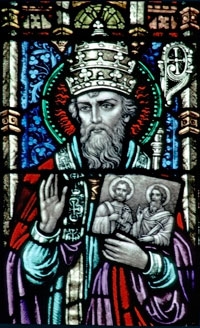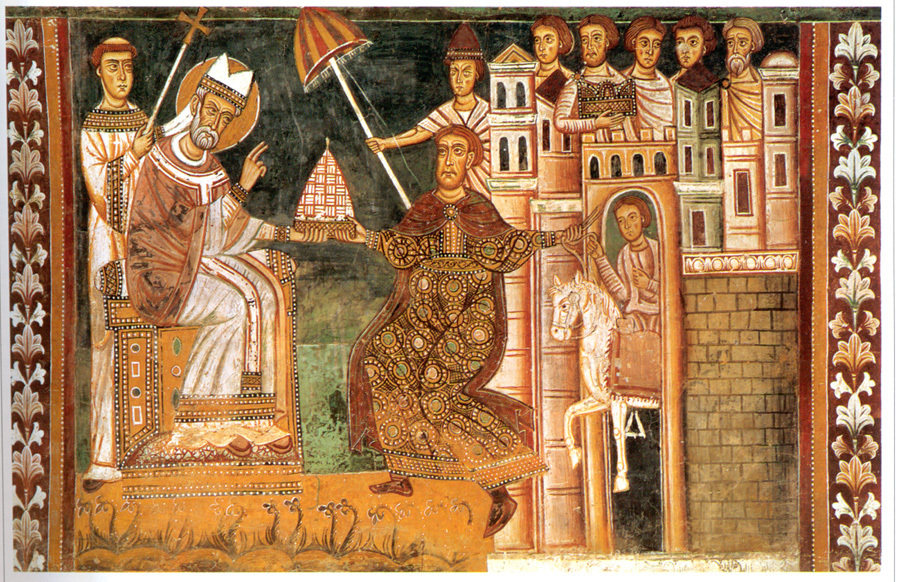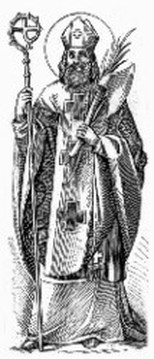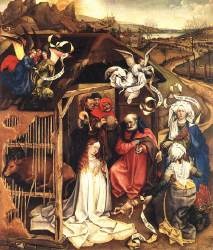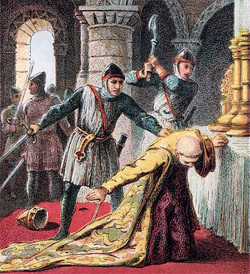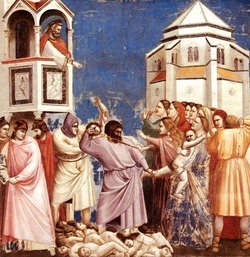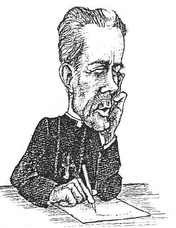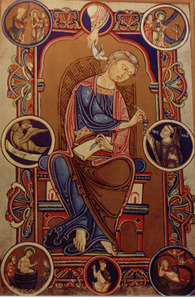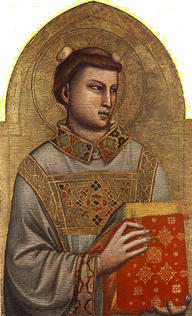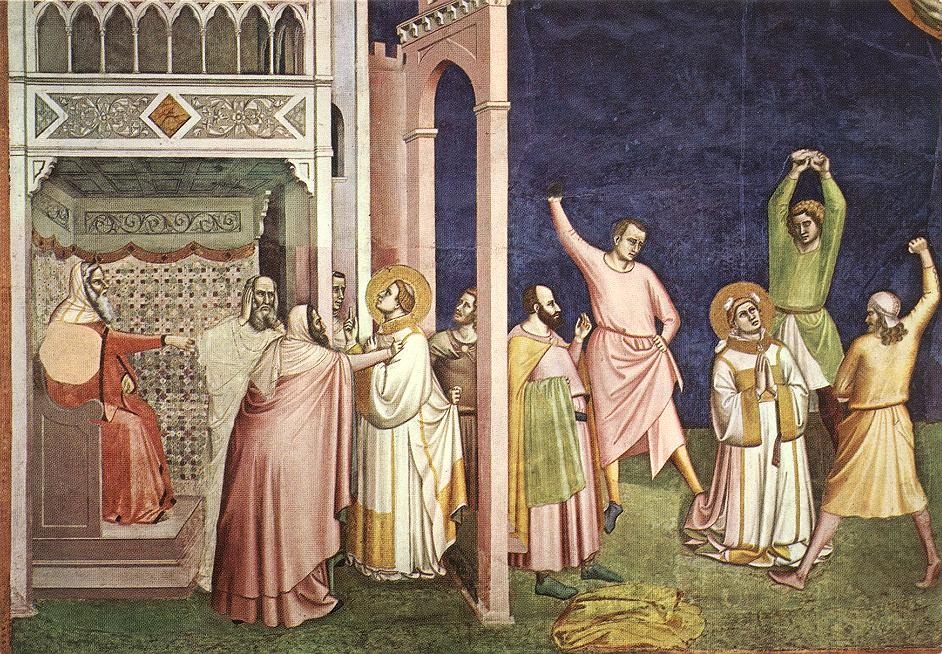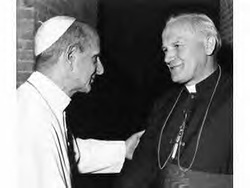
Obviously, the Church will one day judge this council and these popes. How will Paul VI, in particular, fare? Some call him heretic, schismatic, and apostate; others believe themselves to have proved that he could not have acted for the good of the Church, and that therefore he was not in fact pope - the theory held by Sedevacantists. I do not deny that these opinions have some arguments in their favor. Perhaps, you will say, in 30 years secrets will have been revealed, or elements that should have been obvious to contemporary observers will stand out, statements made by this pope in complete contradiction to the traditions of the Church, etc. Perhaps. But I do not believe that such hypotheses are necessary; in fact, I think it would be a mistake to espouse them.
Others think, simplistically, that there were two popes: one, the true pope, imprisoned in the cellars of the Vatican, and the other, an imposter, his double, seated on the throne of Peter, working for the destruction of the Church. Books have been published about the two popes, based on the ‘revelations’ of a possessed person and on supposedly scientific arguments that state, for instance, that the double’s voice is not the same as that of the real Paul VI…!
The real solution seems entirely different to me, much more complex, more difficult, and more painful. It is given us by a friend of Paul VI, Cardinal Danielou. In his Memoirs, published by a member of his family, the cardinal clearly states, “It is clear that Paul VI is a liberal Pope.”
Such is the solution that seems the most historically likely, because this pope was himself a fruit of liberalism. His whole life was permeated with the influence of the men he chose to surround him or to rule him, and they were liberals.
Paul VI did not hide his liberal leanings; at the Council, the men he chose as moderators to replace the presidents appointed by John XXIII, were Cardinal Agagianian, a cardinal of colorless personality from the Curia, and Cardinals Lercaro, Suenens and Dopfner, all three liberals and the pope’s friends. The presidents were sidelined at the head table, and these three liberals directed the conciliar debates. In the same way, Paul VI supported the liberal faction that opposed the tradition of the Church throughout the entire Council. This is a recognized fact. Paul VI repeated – I quoted it to you - the exact words of Lammenais at the end of the Council: “L’Eglise ne demande que la liberte” – the Church only seeks freedom - a doctrine condemned by Gregory XVI and Pius IX.
Paul VI was undeniably very strongly influenced by liberalism. This explains the historic evolution experienced by the Church over the last few decades, and it describes Paul VI’s personal behavior very well. The liberal, as I have told you, is a man who lives in constant contradiction. He states the principles, and does the opposite; he is perpetually incoherent.
Here are a few examples of the thesis-antithesis conundrums that Paul VI loved to present as so many insoluble problems, mirroring his anxious and conflicted mind. The encyclical Ecclesiam suam, (August 6, 1964), provides an illustration:
If, as We said, the Church realizes what is God’s will in its regard, it will gain for itself a great store of energy, and in addition will conceive the need for pouring out this energy in the service of all men. It will have a clear awareness of a mission received from God, of a message to be spread far and wide. Here lies the source of our evangelical duty, our mandate to teach all nations, and our apostolic endeavor to strive for the eternal salvation of all men. (…) The very nature of the gifts which Christ has given the Church demands that they be extended to others and shared with others. This must be obvious from the words: “Going, therefore, teach ye all nations,” Christ’s final command to His apostles. The word apostle implies a mission from which there is no escaping.
That is the thesis, and the antithesis follows immediately:
To this internal drive of charity which seeks expression in the external gift of charity, We will apply the word ‘dialogue.’ The Church must enter into dialogue with the world in which it lives. It has something to say, a message to give, a communication to make.
And finally he attempts a synthesis, which only reinforces the antithesis:
Before we can convert the world - as the very condition of converting the world - we must approach it and speak to it.[1]
Of greater gravity are the words with which Paul VI suppressed Latin in the liturgy after the Council, and they are even more characteristic of his liberal psychology. After restating all the advantages of Latin: a sacred language, an unchanging language, a universal language, he calls, in the name of adaptation, for the “sacrifice” of Latin, admitting at the same time that it will be a great loss for the Church. Here are his very words, reported by Louis Salleron in his book La nouvelle messe [The New Mass] (Nouvelles Editions Latines, 2nd ed., 1976, p. 83)
On March 7, 1965, he said to the faithful gathered in St. Peter’s square,
It is a sacrifice that the Church makes in renouncing Latin, a sacred language, beautiful, expressive, and elegant. The Church sacrifices centuries of tradition and unity of language in the name of an ever-growing desire for universality.
The ‘sacrifice’ of which he spoke became a reality with the Instruction Tres abhinc annos (May 4, 1967) which established the use of the vernacular for reciting the Canon of the Mass aloud.
This ‘sacrifice,’ in Paul VI’s mind, seems to have been final. He explained it once again on November 26, 1969, when he presented the new rite of the Mass:
The principal language of the Mass will no longer be Latin, but the vernacular. For anyone familiar with the beauty and power of Latin, its aptness for expression of the sacred, it will certainly be a great sacrifice to see it replaced by the vernacular. We are losing the language of centuries of Christianity, we become as intruders, reduced to the profane in the literary domain of expressing the sacred. We lose, too, the greater part of the admirable, incomparable wealth of art and spirituality contained in Gregorian chant. It is with good reason, then, that we experience regret and even distress.
Everything therefore should have dissuaded Paul VI from imposing this ‘sacrifice’ and persuaded him to maintain the use of Latin. On the contrary, deriving a singularly masochistic pleasure from his ‘distress,’ he chose to act against the principles he had just set forth, and decreed the ‘sacrifice’ in the name of promoting understanding of prayer, a specious argument that was only a modernist pretext.
Never has liturgical Latin been an obstacle to the conversion of infidels or to their education as Christians. Quite the opposite: the simple peoples of Africa and Asia loved Gregorian chant and the one sacred language, the sign of their affiliation to Catholicism. And experience shows that where Latin was not imposed by missionaries of the Latin Church, there the seeds of future schism were planted.
Paul VI followed these remarks with this contradictory pronouncement:
The solution seems banal and prosaic, but it is good, because it is human and apostolic. The understanding of prayer is more precious than the dilapidated silks in which it has been royally clad. More precious is the participation of the people, the people of today who want us to speak clearly, intelligibly, in words that can be translated into their secular tongue. If the noble Latin language cuts us off from children, from youth, from the world of work and business, if it is an opaque screen instead of a transparent crystal, would we fishers of men do well to maintain its exclusive use in the language of prayer and religion?
Alas, what mental confusion. Who prevents me from praying in my own tongue? But liturgical prayer is not private prayer; it is the prayer of the whole Church. Moreover, another lamentable lack of distinction is present: the liturgy is not a teaching addressed to the faithful, but the worship the Christian people address to God. Catechism is one thing, and the liturgy is another. The point is not that we “speak clearly” to the people assembled in the church, but rather that these people may praise God in the most beautiful, most sacred, and most solemn manner possible. “Praying to God with beauty” was St. Pius X’s liturgical maxim. How right he was!
You see, the liberal mind is conflicted and confused, anguished and contradictory. Such a mind was Paul VI’s. Louis Salleron explained it very well when he described Paul VI’s physical countenance, saying “he was two-faced.” Not duplicitous—this word expresses a malicious intent to deceive which was not present in Paul VI. No, he had a double personality, and the contrast between the sides of face expressed this: traditionalist in words, then modernist in action; Catholic in his premises and principles, and then progressive in his conclusions; not condemning what he should have, and then condemning what he ought to have preserved.
This psychological weakness afforded an ideal opportunity for the enemies of the Church. While maintaining a Catholic face (or half-face, if you like) he contradicted tradition without hesitation, he encouraged change, baptized mutation and progress, and followed the lead of the enemies of the Church, who egged him on.
Did not the Izvestia, official newspaper of the Communist Soviet party, demand from Paul VI my condemnation and that of Econe in the name of Vatican II? And the Italian Communist paper L’Unita followed suit after the sermon I gave in Lille on August 29, 1976; furious because of my attack on Communism, they devoted an entire page to their demand. “Be aware,” they wrote, addressing Paul VI, “be aware of the danger Lefebvre represents, and continue the magnificent approach initiated through the ecumenism of Vatican II.” With friends like these, who needs enemies? This is a sad illustration of a rule we have already established: liberalism leads from compromise to treason.
The psychology of a liberal pope is easy enough to imagine, but difficult to bear! Indeed, such a leader—be it Paul VI or John Paul II—puts us in a very delicate position.
In practice, our attitude must base itself on a preliminary distinction, made necessary by the extraordinary circumstances of a pope won over by liberalism. This is the distinction we must make: when the pope says something in keeping with tradition, we follow him; when he opposes the Faith, or encourages opposition of the Faith, or allows something to be done that attacks the Faith, then we cannot follow him. The fundamental reason for this is that the Church, the pope, and the hierarchy must serve the Faith. They do not make the Faith, they must serve it. The Faith cannot be made; it is immutable, and must be transmitted.
This is why papal teachings intended to validate actions opposed to tradition cannot be followed. In following, we would participate in the self-destruction of the Church, in the destruction of our Faith.
It is clear that what is unceasingly demanded of us—complete submission to the pope, complete submission to the Council, acceptance of the entire liturgical reform—is in opposition to tradition, in the sense that the pope, the Council and the reforms lead us far from tradition, as the facts show more overwhelmingly every year. Therefore, to demand these things is to require us to participate in the downfall of the Faith. Impossible! The martyrs died to defend the Faith; we have the example of Christians imprisoned, tortured, sent to concentration camps for the Faith. One grain of incense offered to an idol, and their lives would have been safe. I was advised once, “Sign, sign saying you accept everything, and then you can continue as before!” No! One does not play games with the Faith.
Footnote
1 English translation taken from the Vatican’s website
